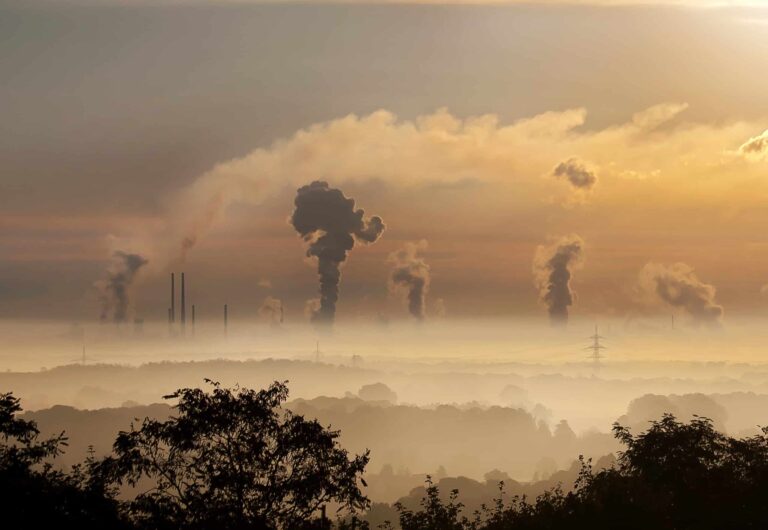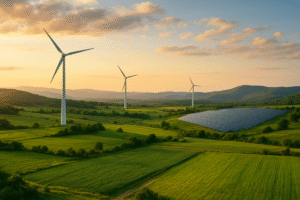Carbon emissions have become one of the most pressing environmental issues of our time. Carbon dioxide, methane, and other greenhouse gasses released by human activities have contributed to global warming and climate change, which have dire consequences for our planet.
Knowing where emissions are coming from and which industries are the biggest contributors will help us reduce emissions effectively. While there are many sources of carbon emissions, some industries have a particularly significant impact.
In this article, we will explore some of the major carbon-emitting industries and their impact on the environment.
Table of Contents
The 5 major industries for carbon emissions
The following are the industries that pollutes the most for carbon emissions:
Transportation
The largest portion of greenhouse gas emissions is produced by the transportation industry. The primary source of transportation-related greenhouse gas emissions is the combustion of fossil fuels in our automobiles, trucks, trains, ships, and airplanes. Coupled with the fact that Petrol makes up more than 90% of the fuel used for transportation, mostly in the form of gasoline and diesel.
When these fuels are used, carbon dioxide (CO2) and some other greenhouse gases are released into the atmosphere. In addition to CO2, other emissions such as nitrogen oxides (NOx) and particulate matter (PM) also contribute to the problem.
Apparently, transportation is essential for many industries, including manufacturing, agriculture, and construction. These industries rely on the movement of goods and people to operate efficiently. However, the transportation sector’s dependence on fossil fuels means that it is a significant contributor to climate change. As a result, it is crucial to find ways to reduce emissions while still allowing these industries to function.
Power generation
Power generation is also one of the largest contributors to carbon emissions globally. Fossil fuels, such as coal, natural gas, and oil, are used to generate electricity in power plants. These fuels emit carbon dioxide to the atmosphere when they are burned. According to the International Energy Agency (IEA), power generation accounts for about 40% of global carbon emissions.
To address this issue, a range of solutions must be pursued, including increasing the use of renewable energy sources, improving the efficiency of fossil fuel power plants, and exploring new technologies such as carbon capture and storage.
By taking action to reduce carbon emissions from power generation, we can help mitigate the impacts of climate change and create a more sustainable future for all.
Manufacturing
Manufacturing is another industry that contributes significantly to carbon emissions. The production of cement, steel, and other materials requires large amounts of energy, often from fossil fuels.
The manufacturing process involves the use of raw materials, energy, and transportation, all of which generate carbon emissions. The extraction and transportation of raw materials, such as metals, minerals, and fossil fuels, require energy and result in carbon emissions.
China is seen as the largest emitter of carbon dioxide from manufacturing, followed by the United States and India. Efforts to reduce carbon emissions from manufacturing include the development of cleaner technologies, such as carbon capture and storage, and the use of renewable energy sources.
Read also: Which countries are the world’s big polluters, and their measures to curb emissions
Agriculture and forestry
Agriculture contributes to carbon emissions, primarily through deforestation and the use of fertilizers and other chemicals. The carbon held within trees is emitted to the atmosphere when they are cut down.
By emitting greenhouse gasses and converting non-agricultural land, including forests, into agricultural land, agriculture is a major contributor to climate change. the use of fertilizers and other chemicals likewise releases nitrous oxide and other greenhouse gasses.
Efforts to reduce carbon emissions from agriculture and forestry include reforestation and the use of sustainable farming practices. Sustainable farming practices can reduce the use of fertilizers and chemicals, while reforestation can help to store carbon in trees and other plants.
Constructions
The sector’s operational power CO2 emissions reached ten tons of carbon dioxide equivalent five percent above the 2020 levels. And, two percent over the pre-pandemic maximum in 2019. Buildings’ operational energy needs for heating, lighting, cooling, and machinery increased by about 4% from 2020 and by 3% from 2019 to 2021.
Almost 9% of all energy-related CO2 emissions are already attributable to materials used in building construction. To prevent undermining energy-saving measures, embodied carbon in buildings, or the emissions linked to materials and construction processes, needs to be addressed.
Efforts are underway to reduce emissions
Carbon emissions are a major environmental issue, and some industries have a particularly significant impact. However, Efforts are underway to reduce carbon emissions from these industries through the development of cleaner technologies, the use of renewable energy sources, and the adoption of sustainable practices.
The intensity of emissions will increase further, reaching 62 GT by 2030, if present trends in economic development, population, and emissions intensity persist. Therefore, as various industries are working on reducing the intensity of these emissions, as individuals and as a society, each of us can contribute to the effort to lessen our carbon output. And, move toward a more sustainable society.
Read also: Carbon footprint: what is it and how to reduce it












